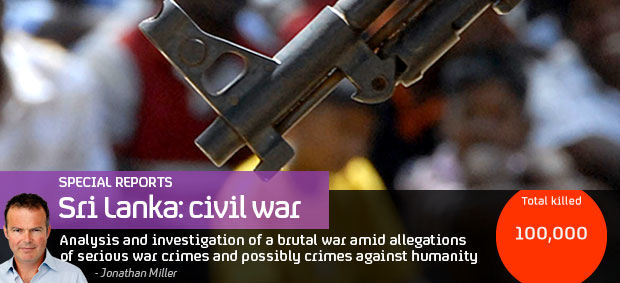Sri Lanka, paradise islands and sport
What is it about paradise islands and sport? Just as we emerged from the sight of England playing World Cup Cricket on Sri Lanka’s killing fields, we were confronted with the promise in October from World Motor Sport, of a Grand Prix staged in Bahrain around the very traffic island that hosted the pro-democracy rebellion that flowered during the Arab Spring.
Next Tuesday night at 11.05pm, Channel 4 transmits one of the hardest-hitting, best-researched, and most shocking documentaries in the Channel’s 30-year history. I am proud to be the reporter on ‘Sri Lanka’s Killing Fields’.
The film shows conclusive evidence of top-level Sri Lankan government involvement in the massacre of at least 40,000 Tamil civilians. The film does not spare the Tamil Tigers either, accusing them of war crimes too.
But the overwhelming truth revealed in the film is the extent to which the machinery of government and military security on the island was used to systematically corral and kill huge swathes of the Tamil population. We show hospitals – adorned with large red crosses – systematically bombed and shelled by government forces; we show Tamils, who had surrendered or been captured, executed on the field of battle.
Yet this is the very island that World Cricket CHOSE to host the most recent World Cup. There was little protest, little awareness of Sri Lanka’s bloody secret.
Thanks to the Formula 1 teams and Bernie Ecclestone himself – the current boss of world motor sport – the authorities in Bahrain will not now get their way in staging the Grand Prix in October. It may be that for once, blood speaks louder than cash. The minority Sunni Bahraini regime has spoken of the uniting force of sport. Yet dozens of Grand Prix employees – all from the Shia majority – have been locked up and deprived of their jobs. Bahrain’s protests are only being contained by sheer force of arms – arms belonging to neighbouring Saudi Arabia.
If Bahrain’s Grand Prix had gone ahead in October, there would have been the serious danger that the event could have become a rallying point, in which blood and oil would compete with each other for the drains.


